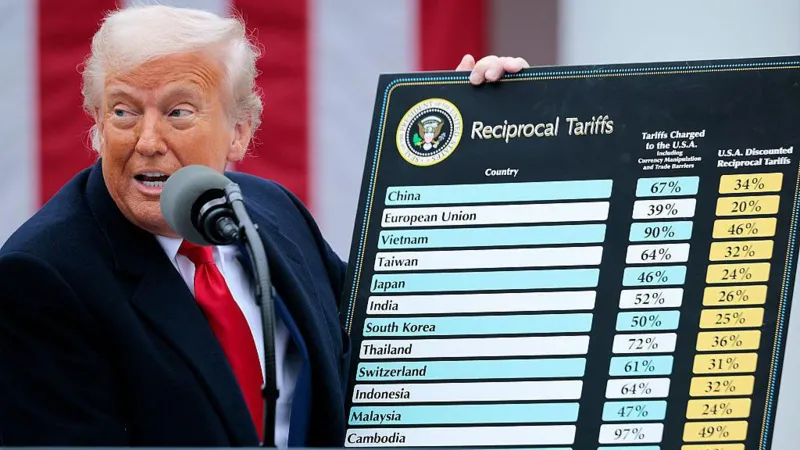In recent months, the European Union has revealed an all-encompassing strategy aimed at reshaping its approach to tariffs, reflecting a decisive shift in trade policy that could have significant implications for global commerce. This new strategy emerges as the EU seeks to navigate the complex landscape created by previous administrations, particularly that of former President Donald Trump, whose protectionist measures had a profound impact on international trade dynamics.
The EU’s objective is clear: to foster a more cooperative and less confrontational trade environment while simultaneously addressing the economic challenges that arise from tariffs.
The EU’s proposed strategy includes a variety of measures designed to engage in dialogue with the United States, aiming to persuade Washington to reconsider its stance on tariffs. By emphasizing mutual benefits, the EU hopes to foster a collaborative atmosphere that could lead to reduced tariffs on both sides of the Atlantic.
According to a spokesperson for the European Commission, “We believe that open markets lead to increased growth and prosperity for all. Through dialogue and negotiation, we can find common ground.” This statement underscores the EU’s commitment to diplomacy as a tool for resolving trade disputes.
However, the question remains: will this strategy effectively shift the U.S. stance on tariffs? Analysts have expressed skepticism, noting that the political landscape in the United States remains volatile. With rising populism and protectionist sentiments still prevalent among certain voter demographics, the EU may find it challenging to sway U.S. policymakers.
A trade expert remarked, “While the EU’s approach is commendable, it must grapple with the reality that American politics is not solely driven by economic logic, but also by domestic pressures and ideologies.”
Moreover, the EU faces its own internal challenges in implementing this strategy. Member states have varying interests, with some economies more reliant on exports than others. Achieving a unified front may prove difficult, as countries like Germany prioritize trade relations while others may support more stringent measures against perceived unfair practices.














